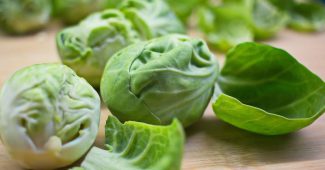We can find many low-carb vegetables that are crucial for maintaining a healthy body. Even though these vegetables contain less sugar and starch, they can still provide vitamins, minerals, and nutrients essential to the body. They are more efficient for weight loss than low-fat diets because the body uses fat instead of carbohydrates to produce energy.
While providing enough energy to sustain you throughout the day, they can keep on maintaining recommended blood sugar and cholesterol levels. Additionally, they help prevent health issues like cancer, diabetes, arthritis, and heart disease. Discover the top 10 vegetables with the lowest carb counts.
10Asparagus, 3.88 g
They are low in calories and fat but contain all the essential nutrients and antioxidants required for the body’s regular functioning, making them ideal for weight loss. Asparagus’s insoluble fiber supports digestion and regular bowel movements, whereas a small amount of soluble fiber can strengthen the immune system.
9Swiss Chard, 3.74 g
Its antioxidants protect the body from free radicals and reduce the risk of chronic diseases. Many studies indicate that those with the highest intake of Swiss Chard are less likely to be affected by the risk of heart disease and are 17% less likely to have overweight or obese. Its high fiber content slows digestion and stabilizes blood sugar levels.
Top 10 Healthiest Vegetables for Weight Loss
8Cucumber, 3.63 g
One cup of sliced cucumber weighing 100g provides only about 3.63 grams of carbs, making it an excellent keto-friendly vegetable. Peeled cucumbers have slightly lower carb counts than unpeeled options and are nutrient-dense, providing many health benefits. Cucumbers have anticancer and anti-inflammatory properties that help protect brain health.
7Spinach, 3.63 g
Spinach is a functional food due to its numerous health benefits, including anti-obesity, anti-cancer, hypoglycemic, and hypolipidemic properties. If you’re not a fan of spinach in salads, try freezing baby spinach and adding it to a green smoothie for a quick and easy nutrient boost. Spinach is also high in vitamin K, which can help protect your heart and eye health.
6Radish, 3.4 g
They are also extremely low in carbs, with a cup serving of fresh, sliced radish weighing 100 g containing only about 3.4 grams of net carb, making them a great choice for people reducing their carb or sugar intake. Despite being low in calories, they are also rich in vitamins and minerals.
5White Mushroom, 3.26 g
Try incorporating them in various ways, such as in leafy green salads, cooked with scrambled eggs, and used to layer a low-carb sandwich suitable for a keto diet. White Mushrooms are also high in fiber, minerals like selenium, copper, potassium, and vitamin B, and contain several antioxidants, like ergothioneine and glutathione, which help protect your cells from oxidative damage.
4Celery, 2.97 g
Its dietary fiber aids digestion and helps you feel full, reducing the likelihood of overeating. Celery also offers impressive health benefits, such as protecting the body from harmful molecules and chronic diseases, supporting heart health, and promoting hydration.
3Tenderstem Broccoli, 2.85 g
Tenderstem Broccoli, or Broccolini, is a hybrid of broccoli and Chinese kale originating from Japan. Since its stems are thin and tender, you can eat them whole. One cup of the vegetable weighing 100 g contains only 2.85 grams of net carbs, making it a great addition to a keto diet. Broccolini is rich in minerals like manganese, calcium, and phosphorus, which are vital for bone health.
It has four times more vitamin A than regular broccoli, making it an excellent nutrient source. Unlike many other vegetables, it requires less preparation time and generates no waste. You can steam and serve it as a side dish or salad or add it to pasta, stir-fries, or risotto.
2Pak Choi, 2.18 g
Due to its mild flavor, it can pair quickly well with seasonings and sauces. It does not affect blood glucose levels and can offer many health benefits. It helps the body fight against inflammation and cell damage, reduces the risk of heart disease, and protects against various types of cancers.
Related Articles
1Watercress, 1.29 g
Furthermore, it is an excellent source of dietary fiber and protein, which makes it an ideal choice for those who want to maintain a healthy weight. Additionally, its high water content ensures proper hydration and supports overall health. Watercress also helps promote healthy eyesight and offers a range of other health benefits that make it a valuable addition to any meal plan.




